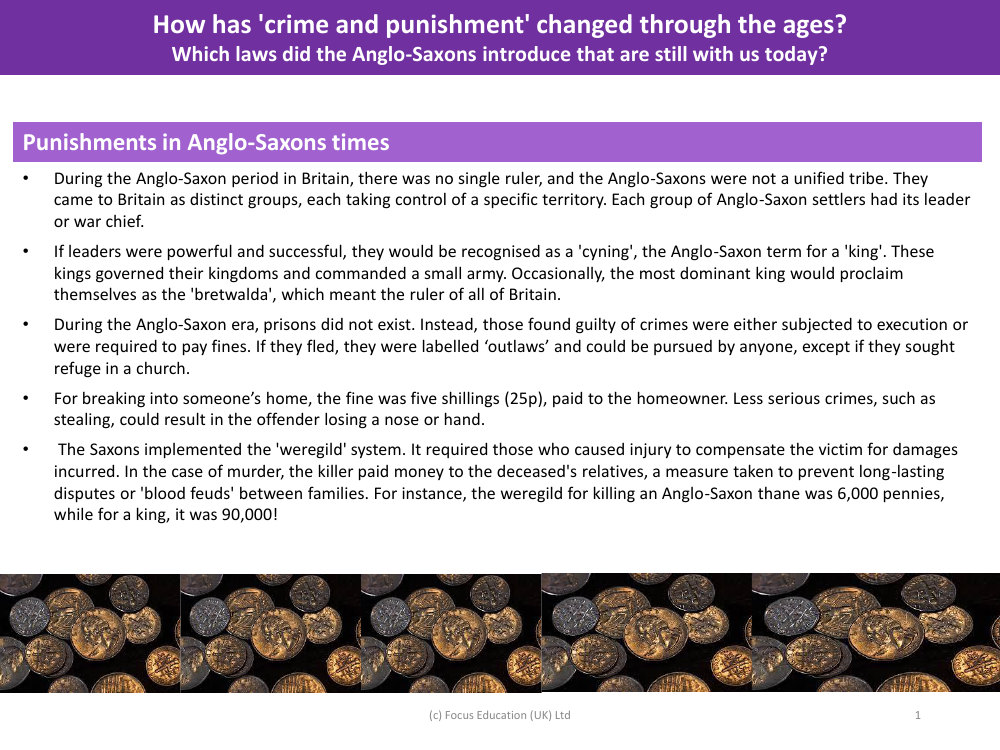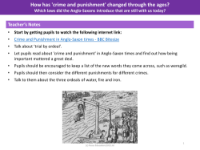Punishments in Anglo-Saxons times - Info sheet

History Resource Description
In Anglo-Saxon Britain, the concept of a unified nation under a single ruler was non-existent. Instead, the land was divided among various groups of Anglo-Saxon settlers, each with its own leader or warlord. These leaders, if successful and powerful enough, could be acknowledged as 'cyning', the Old English word for 'king', who ruled their domains and maintained a small military force. Occasionally, a particularly dominant king might declare themselves 'bretwalda', a title signifying their claim to rule over the entirety of Britain.
Punishments during this period were harsh and prison systems were not yet established. Those found guilty of crimes faced either execution or fines, and if they chose to flee, they were branded as 'outlaws', free to be hunted by anyone unless they sought sanctuary within a church. For instance, a burglary in someone's home incurred a fine of five shillings, payable to the victim. Lesser crimes like theft might result in severe physical punishments, including mutilation. The Saxons also practiced the 'weregild' system, which required a perpetrator to pay compensation for injuries or death. This system aimed to prevent enduring feuds between families, with the weregild for murdering a thane set at 6,000 pennies, and an astonishing 90,000 for a king. These practices raise questions about how 'crime and punishment' have evolved over time and which Anglo-Saxon laws have influenced modern legal systems.






